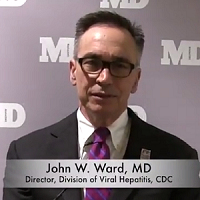The 10 Best Health Stories from February 2017
The MD Magazine editors rounded up the 10 best stories from this month.

February was filled with medical news across all specialties. The American Medical Association (AMA) was quite vocal this month and the US Food and Drug Administration (FDA) didn’t skimp on approvals (find them in our Product News section). MD Magazine covered all of that and more—but somehow we selected 10 must-see pieces.
In case you missed it, our team also headed to Seattle, Washington mid-month for the Conference on Retroviruses and Opportunistic Infections (CROI 2017) and covered infectious disease news.
Don’t forget to stay up-to-date by connecting with MD Magazine on Facebook, Twitter, Instagram, and LinkedIn!

Fearing that the Trump administrations’ plans for restricting immigration could significantly reduce the numbers of physicians practicing in the United States, the American Medical Association (AMA) has appealed directly to Congress.
In a letter written February 6, the AMA asked Congress to support a bipartisan bill that would protect the thousands of International Medical Graduates (IMGs) and medical school students in the US. Reports have shown that one of every four practicing physicians in the US is an IMG and are more likely to work in low-income, underserved communities and other areas with physician shortages.
>>> Continue reading this story here

The medical use of marijuana is a controversial topic. Some researchers believe that marijuana could help reduce use of potentially addictive opioids, but others fear there is too little evidence yet.
Yasmin Hurd, PhD, a neurobiologist at Mount Sinai in New York, New York has some thoughts on both sides of the argument over whether the medical use of marijuana should be expanded. Replacing opioids with cannabis has potential, she said. Cannabinoids (the active compounds in marijuana) and opioids, like oxycodone and morphine, alter perception of pain in the brain. However, the two target different parts of the brain and cause different communication between neurons.
>>> Continue reading this story here

Great things are happening in the world of HIV/AIDS, and the US Centers for Disease Control and Prevention (CDC) just announced that annual HIV infections have declined substantially in the United States.
Presented at the Conference on Retroviruses and Opportunistic Infections (CROI 2017) in Seattle, Washington, CDC estimates found that HIV infections dropped by 18% between 2008 and 2014—going from 45,700 to 37,600 annual infections.
>>> Continue reading this story here

Physicians have complained for years that reviews and scoring systems on commercial doctor-rating websites where patients can anonymously review their doctors are often unfair and inaccurate.
A new study reported in a research letter in JAMA looks at these sites from the patient’s perspective and finds something new: the sites aren’t much use to patients either.
“Search mechanisms are cumbersome and reviews scarce,” wrote lead author, Tara Lagu, MD, MPH, and colleagues at the Center for Quality of Care Research, Baystate Medical Center, Springfield, Massachusetts and two other institutions.
>>> Continue reading this story here

A group of 10 healthcare reproductive experts has pressed US Food and Drug Administration (FDA) officials to loosen the federal regulations associated with mifepristone (Mifeprex/Danco Laboratories), the so-called abortion pill.
Currently, only healthcare providers who undergo a rigorous certification process can dispense the pill in clinics, hospitals, and medical offices — special restrictions still prevent the drug’s sale in pharmacies.
The Mifeprex risk evaluation and mitigation strategy (REMS) group of academics, reproductive health organization leaders, and doctors from Columbia, Princeton, and Stanford Universities wrote an appeal to the FDA in a commentary published in the New England Journal of Medicine.
>>> Continue reading this story here

At the Conference on Retroviruses and Opportunistic Infections (CROI 2017) in Seattle, Washington, John W. Ward, MD, with the Centers for Disease Control and Prevention (CDC) discussed evidence supporting the fact that the hepatitis C virus can, indeed, be eliminated in the United States by 2030.
“We have drugs now that used to take one pill to several pills a day for two to three months, you can cure 95% of people with hepatitis C. The issue is getting those persons identified who are living with this silent infection,” said Ward.
>>> Continue reading this story here

Acorda Therapeutics announced positive results from phase 3 trials of an experimental drug product it calls CVT-301. A formulation of levodopa that can be inhaled, the product is meant to treat re-emergence of symptoms in patients with Parkinson’s disease who are on an oral carbidopa/levodopa regimen.
In a trial known as SPAN-PD, 339 patients were grouped into three arms. One group got a dose of 84mg, one got 60mg, and the other got a placebo.
>>> Continue reading this story here

Besides getting a king size bed to yourself, there appears to be another upside to being divorced or separated—at least for postmenopausal women. A recent study from the University of Arizona (UA) found totally opposite results from other studies on the same subject.
“Earlier studies on marriage and divorce have shown that marriage is usually associated with a longer lifespan and fewer health problems, while divorce is associated with higher mortality,” lead author, Randa Kutob, MD, MPH, an associate professor of family and community medicine, said in a news release.
>>> Continue reading this story here

Concerned about statistics showing that every day 91 people in the United States die from opioid overdoses, New York successfully pressured two major health insurers to discontinue policies that required pre-authorization for opioid addiction treatment drugs.
New York Attorney General Eric T. Schneiderman reached national settlements with Cigna and Anthem in October 2016 and January 2017, respectively.
Recently, the American Medical Association (AMA) has urged others to follow New York’s lead.
>>> Continue reading this story here

Loyal fast food fans might want to rethink ordering that inexpensive meal on the go.
While fast foods have long been scrutinized for their elevated levels of cholesterol, fat, and sodium, new research has highlighted another potential threat: chemicals linked to cancer in fast food packaging.
Laurel Schaider, PhD, of Silent Spring Institute in Newton, Massachusetts, and colleagues conducted a study evaluating wrappers from 27 fast food companies including McDonald’s, Panera Bread, Starbucks, and Wendy’s. The team discovered that one-third of the samples contained concentrations of fluorine — a chemical marker for the per- and polyfluoroalkyl substances (PFAS).